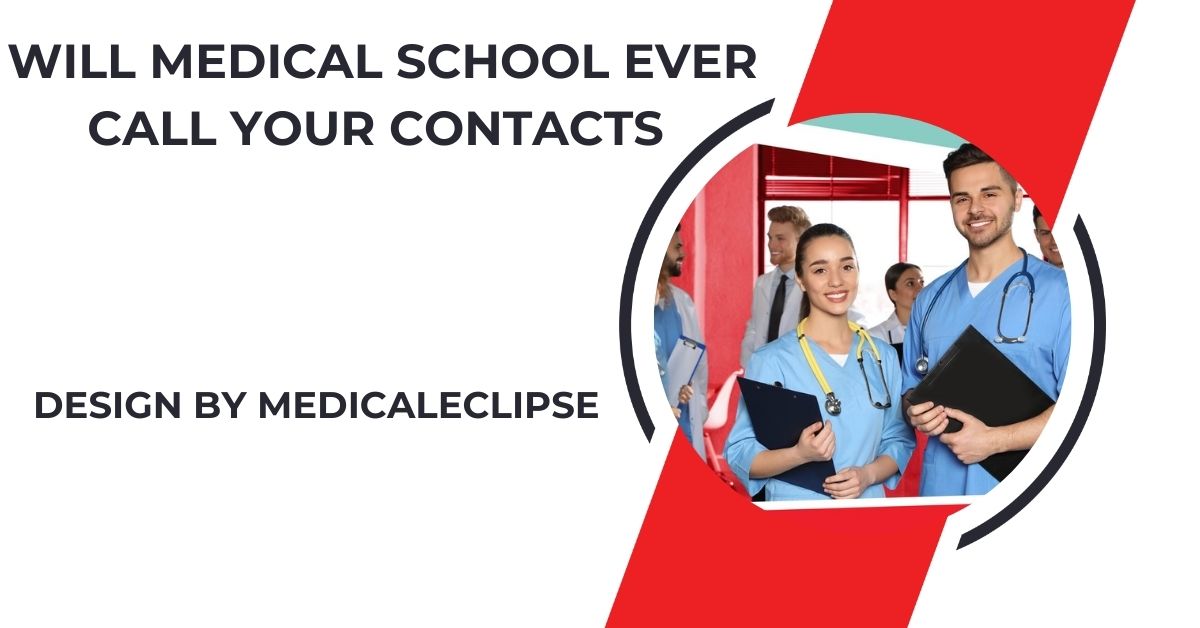Medical schools usually don’t contact your references; they rely on submitted letters. They may reach out if there are discrepancies in your application.
In this article, we’ll delve into the significance of references, what you can expect regarding communication with your contacts, and how to ensure you make the most out of this vital aspect of your application.
The Importance of References in Medical School Applications:
Why References Matter:

References serve as endorsements from credible individuals who can provide a third-party perspective on your qualifications, character, and readiness for medical school. Strong letters of recommendation can be the deciding factor in a competitive admissions landscape. They not only validate your accomplishments but also provide a more personal insight into who you are as a person and a potential physician.
The Holistic Admissions Process:
Medical schools often adopt a holistic approach to admissions, meaning they assess the entire applicant, not just academic metrics like GPA and test scores. Letters of recommendation are a crucial element of this process, offering insight into your interpersonal skills, professionalism, and dedication to the field of medicine.
Types of References:
The diversity of your references can also strengthen your application. Most medical schools require letters from:
- Academic References: Professors or instructors who can speak to your academic performance, critical thinking abilities, and potential for success in a rigorous academic environment.
- Professional References: Supervisors or colleagues from clinical or volunteer experiences who can attest to your practical skills, work ethic, and commitment to patient care.
- Personal References: Individuals who know you well and can comment on your character, resilience, and interpersonal skills. These references are often used to provide a different angle on your personality and motivations.
Also Read: How To Become A Medical Courier – Medical Courier Career Guide!
Will Medical Schools Contact Your References?
Common Practice:
Generally, medical schools do not reach out to references directly as part of the standard admissions process. Instead, they rely heavily on the letters submitted by your contacts. However, understanding the nuances of this practice is essential for applicants.
Verification Procedures:
While it’s rare for schools to contact references, there are situations where they might do so. For instance, if there are discrepancies in your application or if the admissions committee feels uncertain about certain claims, they may reach out to verify information. This can include confirming the authenticity of letters or clarifying details regarding your experiences.
Preventing Fraud:
Medical schools are aware that the pressure to gain admission can lead to unethical practices, such as providing false information or exaggerated claims. As a result, some schools have instituted measures to ensure the integrity of their admissions process. This may involve contacting references to confirm the details of your application, particularly if they suspect any inconsistencies.
Ethical Considerations:
The process of contacting references is also governed by ethical standards. Medical schools aim to uphold fairness and transparency in admissions. If a school decides to contact your references, it typically does so to resolve specific concerns rather than as a routine part of the process.
Preparing Your References:

Choosing the Right Contacts:
Selecting references is crucial for a successful application. Choose individuals who know you well and can articulate your strengths and experiences. Ideally, they should be able to highlight specific examples of your abilities and potential as a physician. It’s advisable to have a mix of academic and professional references to provide a well-rounded view of your qualifications.
Communicating with Your References:
Before submitting your application, inform your references about your decision to apply to medical school. Share your application timeline, the programs you’re applying to, and any specific points you’d like them to emphasize in their letters. This preparation allows them to tailor their recommendations to fit your narrative.
Maintaining Relationships:
Good communication is vital. Keep your references updated on your academic and professional developments. If you have new experiences or accomplishments that strengthen your application, share these with your references to ensure they are informed and can incorporate them into their letters.
Providing Context:
When discussing your application with your references, consider offering context regarding the specific medical schools and their unique values or missions. This insight can help them frame their letters in a way that aligns with what those schools are looking for in candidates.
Practicing Gratitude:
Remember to express your appreciation to your references for their support. Whether through a thank-you note after they submit their letters or a message updating them on your application results, acknowledging their efforts is important and helps maintain a positive relationship for future endeavors.
What to Expect During the Admissions Process:
After Submitting Your Application:
Once your application is submitted, it’s natural to feel anxious about the outcome. While the admissions committee is evaluating your application, they will also be reviewing the letters of recommendation. Trust the process, and focus on what you can control, such as preparing for potential interviews or completing any secondary applications.
Interviews as Opportunities:
If you are granted an interview, this is another chance for you to discuss your experiences and motivations directly. You can also gauge whether your references’ sentiments align with your presentation during the interview. This alignment can further reassure admissions committees about your candidacy.
Handling Concerns:
If you hear back from a medical school with concerns about your application or references, be prepared to address them honestly. Transparency about your experiences and maintaining a professional demeanor will reflect positively on your character and suitability for the medical profession.
FAQ’s
1. Do medical schools contact your references?
Generally, no. Medical schools rely on submitted letters and only contact references if there are discrepancies in your application.
2. Why are references important in medical school applications?
References provide third-party endorsements of your qualifications, character, and readiness for medical school, which can significantly impact your application.
3. What types of references should I include?
Include academic, professional, and personal references to give a well-rounded view of your qualifications and experiences.
4. How can I prepare my references?
Inform them about your application, share your goals, and provide context about the medical schools you’re applying to for tailored letters.
5. What should I do after submitting my application?
Stay positive and focus on preparing for interviews or secondary applications while your references and the admissions committee review your materials.
Conclusion
In conclusion, medical schools usually don’t contact your references, but strong letters of recommendation are crucial for your application. Build genuine relationships with your contacts, communicate clearly, and express gratitude to create a network of advocates. By prioritizing integrity and preparing thoroughly, your references can help you stand out and enhance your chances of success in medical school admissions.

Leave a Reply